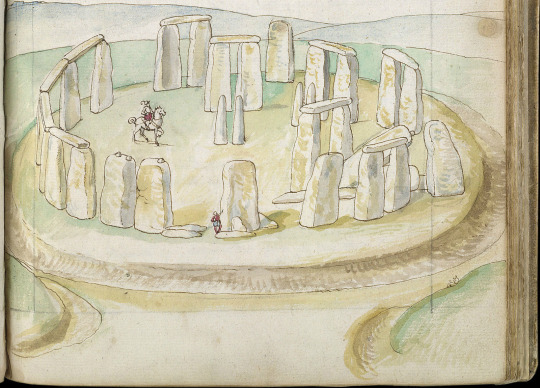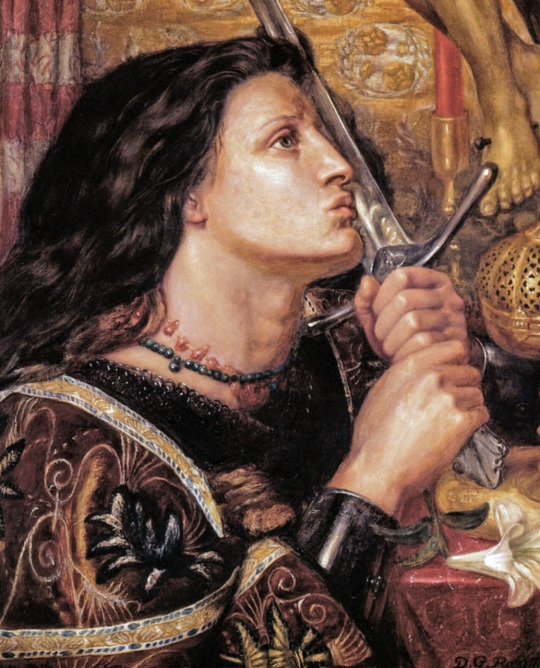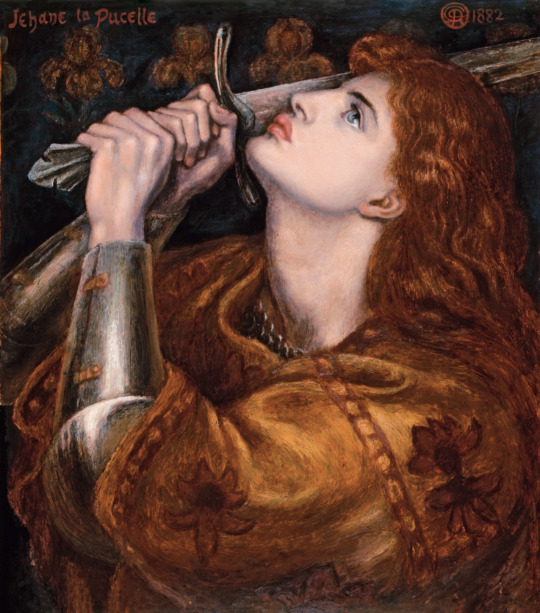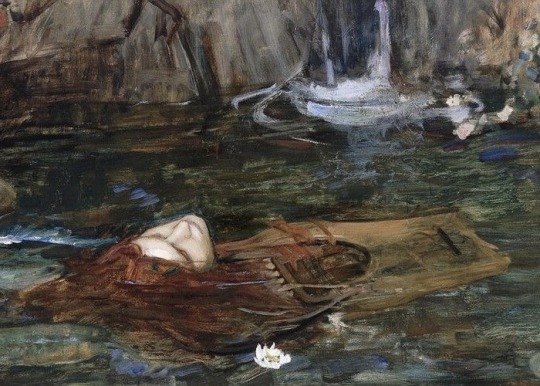#pre-christian
Text

Lucas de Heere (1534–1584)
English: One of the earliest near-accurate depictions of Stonehenge.
Date between 1573 and 1575
watercolor
British Library
#english imagination#art#english culture#english art#english landscape#pagan#stonehenge#Wiltshire#England#Neolithic#stone age#pre-Christian#sacred#sacred landscape#sacred stones#standing stones#stone circle
332 notes
·
View notes
Text
How the Irish Influenced Christmas Traditions
In much the same way that the modern interpretation of Halloween descended from the Celtic pagan celebration of Samhain, several important pre-Christian Irish traditions have been incorporated into the winter holiday season.
Prior to the introduction of Christianity during the early 5th century, Ireland was home to the Celts, a pagan civilisation which worshipped many gods and goddesses. Animism…

View On WordPress
#Beltane#Celtic#Christmas lights outside the GPO#Co Meath#Druids#Dublin#How The Irish Influenced Christmas Traditions#Imbolc#Ireland#Lughnasadh#Newgrange#Northern Europe#Pagan#Pre-Christian#Samhain#Sol Invictus#Yuletide
21 notes
·
View notes
Text
youtube
Shchedryk ("Bountiful Evening") is a Ukrainian shchedrivka, or New Year's song, known in English as "The Little Swallow". It tells a story of a swallow flying into a household to proclaim the plentiful and bountiful year that the family will have.[4] The title is derived from the Ukrainian word for "bountiful". The song is based on a traditional folk chant whose language was thought to have magical properties. The original traditional Ukrainian text used a device known as hemiola in the rhythm (alternating the accents within each measure from 3/4 to 6/8 and back again). The chant based on an ostinato four-note pattern within the range of a minor third is thought to be of prehistoric origins and was associated with the coming New Year which in Ukraine before the introduction of Christianity was originally celebrated in April. Conceptually, the Ukrainian lyrics of this song meet the definition of a shchedrivka, while the English content of "The Little Swallow" identifies it as a kolyadka.
With the introduction of Christianity to Ukraine, the celebration of the New Year was moved from April to January and "Shchedryk" became associated with the Feast of Epiphany also known in Ukrainian as Shchedry vechir, January 18 in the Julian calendar. It was originally sung on the night of January 13, New Year's Eve in the Julian Calendar (December 31 Old Style), which is Shchedry Vechir. In modern Ukraine, the song is again sung on the eve of the Julian New Year (January 13).
5 notes
·
View notes
Text
Damn
Just figured out that I was an early days Christian and was persecuted, arguably psychologically tortured, and enslaved for it and that's why I've always had a hard times believing in/expressing my really weird or fringe beliefs/experiences [Past lives, Spirit Guides, etc.]. Because last time I did that I got murdered. So, yay!
02/05/2024
0 notes
Photo

#poem#short poem#humanity#life#pretend#writing#christian#christianity#life as a christian#pre-christian#life before I met Jesus#jesus#holy spirit#god#christian writing#love#love poem#sad#honest#true#reality#pain#depression
1 note
·
View note
Text


Dante Gabriel Rossetti
British, 1828-1882
Joan of Arc Kissing the Sword of Deliverance (1863) & Joan of Arc (1882)
#art#painting#classical art#art detail#joan of arc#art history#women in art#women in history#historical art#19th century art#British art#preraphaelites#pre raphaelite brotherhood#pre raphaelite#dante gabriel rossetti#rossetti#jeanne d'arc#christian art#dark academia#dark academia aesthetic#dark academia art#paintings#victorian art#19th century
4K notes
·
View notes
Text










CHRISTIAN DIOR Pre-Fall 2024
if you want to support this blog consider donating to: ko-fi.com/fashionrunways
#christian dior#dior#fashion#pre fall#pre fall 2024#fall winter#fall winter 2024#edits#2024#i know i know we're all shocked that they have an interesting collection
2K notes
·
View notes
Text

Launcelot at the Shrine of the Holy Grail: Study for the Angel of the Holy Grail, Dante Gabriel Rossetti, 1857
#art#art history#Dante Gabriel Rossetti#medievalism#Arthurian legend#arthurian mythology#Holy Grail#Grail Cycle#Arthuriana#religious art#Christian art#angel#angels#figure study#drawing#pen and ink#Pre-Raphaelite#Pre-Raphaelite Brotherhood#pre-raphaelisme#British art#English art#19th century art#Victorian period#Victorian art#Birmingham Museum and Art Gallery
1K notes
·
View notes
Text
So, one of the most interesting things that's come from my recent exercises in writing the Olympians as young deities is all of the very fun and somewhat painful conversations that come from the young deities acquiring and consequently settling into their domains.
Apollo and Artemis especially have been really fascinating under the microscope. They start off identically, with extremely similar interests and similar domains over the hunt and wilderness. They spend their days under the stars and foraging for fruit and dancing and singing in the fields, two rustic god-children exploring and learning together. Then Apollo goes off on his own to slay Python.
Now, a lot of things change when Apollo kills Python. That is the act which transforms the bow from a tool of survival and sport to an instrument of murder, bloodshed and ultimately war. It is Apollo's first act of wrath which separates him from Artemis - both spiritually because she has not yet shed blood herself as a goddess and physically because it leads to his exile. Most importantly however, the slaying of Python is the act that grants Apollo his knowledge.
If violence is what first separates Apollo from Artemis then it is knowledge which keeps them apart.
This can refer to a lot of things; that Artemis continued to be at home with the wild beasts of the forests and mountains while Apollo grew to prefer the domesticated sheep and cattle, that Artemis continued to avoid mortals while Apollo grew to know their ways and endeavoured to teach them more. The point that has been the most interesting to me however has been Artemis, who remains free of slaughter, and thus remains pure and Apollo, who becomes acutely and entirely too aware of it, and thus must be constantly purified.
Apollo's infatuation with medicine specifically is the place where this becomes most apparent. When he leaves for his exile to travel as a mortal, without nectar or ambrosia, without power, Apollo is without the privileges of the divine for the very first time. He sweats, he smells, he grows weary when he travels, he grows hungry and thirsty. He experiences fatigue and nausea, the fever of sickness, the chill of infection, the delirium of poison. The blood Apollo shed does not only make him impure spiritually, it strips him of the purity of his birth and station. Likewise, medicine is not a divine practice. What use do the unkillable immortals have for something as finicky as medicine when they have nectar and ambrosia? Apollo however, knows of the pains of the flesh and the suffering of the mortal coil. He pursues medicine in all its horrors and difficulties because of the knowledge he gained with blood.
Artemis then, cannot understand the medical Apollo. When her brother returns possessed by this spectre of ill-gained knowledge, she does not recognise him. Who is this boy who scores the deer and studies the shape of their intestines before he cooks them? What good is there in rescuing a chick with a broken wing? The Apollo-of-the-Wild in her memories would have done the correct thing and left the thing for dead - let the forest take what is its due. Who is this Apollo whose hands are always stained to the wrist in the blood and gore of the living? What is his fascination with the mechanics of mortal bodies? Artemis does not know and Apollo does not tell her.
That has, by far, been my favourite effect of the whole Python watershed moment to explore recently.
#ginger rambles#apollo#artemis#greek mythology#pursuing daybreak posting#There are actually quite a few parallels with the Christian Adam and Eve in this whole exploration of Apollo and Artemis pre and post Pytho#Blood-soaked Apollo - much like Apollo of the Ashes - is one of my favourites because it always leads to such fascinating questions#Like it's clear that Apollo did not shy away from butchery and slaughter and if things like hepatoscopy is any indication#he needed to do these things frequently in order to keep sharp#Medicine is its own beast tbh#Including the differences between mortal and immortal medicine#Yes Asclepius would eventually come to surpass him but Apollo was the pioneer and the study of medicine#of studying diseases and creating cures for them is not a pretty thing#Combined with Apollo's prophecy I imagine he had his hands full#Though Zeus would've taught him a few things no doubt considering how vast his own knowledge is#God I love Apollo's wall of horrors actually#Like fr if you are squeamish do not go into this man's room you will cry and throw up though not necessarily in that order#cw gore mention#cw blood
128 notes
·
View notes
Text













Leverage Redemption S02E13 The Crowning Achievement Job.
#leverage#leverage redemption#eliot spencer#sophie devereaux#christian kane#gina bellman#nice callback to both eliot's and sophie's jobs pre-leverage#sophie did the art theft and eliot did the terrorism#also that 'art theft funds terrorism' line got completely mangled by whoever wrote the subtitles#it's written as 'our death funds terrorism'#nope! wrong!(and makes no sense either!)#ahem don't mind me but the subtitles for redemption are sometimes completely off the mark#i'll go away now#ghostly'sgifs
217 notes
·
View notes
Text

John Byam Liston Shaw (British, 1872-1919)
Blessed Damozel, detail, 1895
Guildhall Art Gallery, London
#John Byam Liston Shaw#Blessed Damozel#1895#1800s#art#fine art#european art#classical art#europe#european#fine arts#oil painting#europa#mediterranean#pre raphaelite#women#female#women in art#blonde#brunette#europeans#christian art#christian#christianity#spinning
117 notes
·
View notes
Text
How the Irish Influenced Christmas Traditions
How the Irish Influenced Christmas Traditions
In much the same way that the modern interpretation of Halloween descended from the Celtic pagan celebration of Samhain, several important pre-Christian Irish traditions have been incorporated into the winter holiday season.
Prior to the introduction of Christianity during the early 5th century, Ireland was home to the Celts, a pagan civilisation which worshipped many gods and goddesses. Animism…

View On WordPress
#Beltane#Celtic#Christmas lights outside the GPO#Co Meath#Druids#Dublin#How The Irish Influenced Christmas Traditions#Imbolc#Ireland#Lughnasadh#Newgrange#Northern Europe#Pagan#Pre-Christian#Samhain#Sol Invictus#Yuletide
56 notes
·
View notes
Text


nymphs finding the head of orpheus (detail) by john william waterhouse (1900) | petr svojtka as prince in ❝ malá mořská víla / the little mermaid ❞ (1976) dir. karel kachyňa
#1900s art#20th century art#european art#art detail#art history#painting detail#nymphs finding the head of orpheus#orpheus#greek mythology#ancient greek mythology#john william waterhouse#pre raphaelism#pre raphaelite#malá mořská víla#the little mermaid 1976#the little mermaid#little sea nymph#hans christian andersen#karel kachyňa#european cinema#1970s cinema#czechoslovak cinema#czechoslovak new wave#czechoslovak fairy tale#czech cinema#czech fairy tale#fairy tale movies#fairy tale aesthetic#painting aesthetic#art aesthetic
200 notes
·
View notes
Text
I think my favorite difference between the comic and movie is that in the movie, they live in an isolationist fortified city and their only concept of religion is regarding Gloreth. They treat her like a God, all the way down to using her name as an expletive.
Meanwhile in the Comic they live in just. A regular medieval (albeit sci-fantasy with modern elements) city 😭 and they celebrate Christmas and it is CALLED Christmas, and they say "God" as an expletive which means that Christianity, and by extension Jesus Christ Himself exist in the canon of the Nimona Comic Universe
#I like to headcanon that pre-Gloreth people practiced real world religions in the movieverse#an easter egg is in my fics ONLY Nimona says “Oh my God” while everyone else says Gloreth#because she's the only one who can remember the concept of a God existing 😭#anyway do we think Comic Ambrosius is/was a Christian and it contributed to his endless issues or#not that religion/Christianity is always a bad influence but I feel like in this context it defo would be lol#nimona#nimona 2023#nimona movie#nimona graphic novel#nimona analysis#nimona comparison
106 notes
·
View notes
Text


a carved mother-of-pearl quran box and matching quran depicting al-aqsa mosque from bethlehem, palestine, dating to the 1960s.
mother-of-pearl carving is a traditional craft in bethlehem; said to have been brought over by franciscan monks from italy in the 15th century. the tradition is still going strong today.
#palestine#items#worship#muslim#my posts#check out yasser barakat's site too (in the content source link)#he sells antiques & funds palestinian artists & craftsmen in jerusalem he's a cool dude#also yes i copied the description of the other post i made lol#like i said in my last post mother-of-pearl carving is usually associated w/ christianity but it's not exclusively christian#there's some muslim or even jewish things which are carved mother of pearl#(palestine had a small pre-you know what jewish population that got absorbed into you know where)#btw the crown on the inside of the lid is the royal hashemite crown since this is from when bethelehem was under jordanian control
164 notes
·
View notes
Text
Ok just hear me out, Vox singing this to Alastor before he disappeared for 7 years.
#yes i know this a bit ooc#but just like imagine there in an qpr or friends or something pre alastor disappearing#and then Alastor tells Vox he has to leave (he is being called away by lilith)#so vox sings this because you know#same voice actor#and then over the 7 years apart vox is more and more bitter towards alastor for leaving#idk y'all i just love them and think they can be soft if they want to while still keeping in mind that alastor is aroace#musicals#video#christian borle#vox#hazbin hotel vox#radiostatic#staticradio#onesided radiostatic#but also radiostatic qpr#onewaybroadcast#<i think this is the new tag for one-sided radiostatic#hazbin hotel#my hc#i say stuff
97 notes
·
View notes